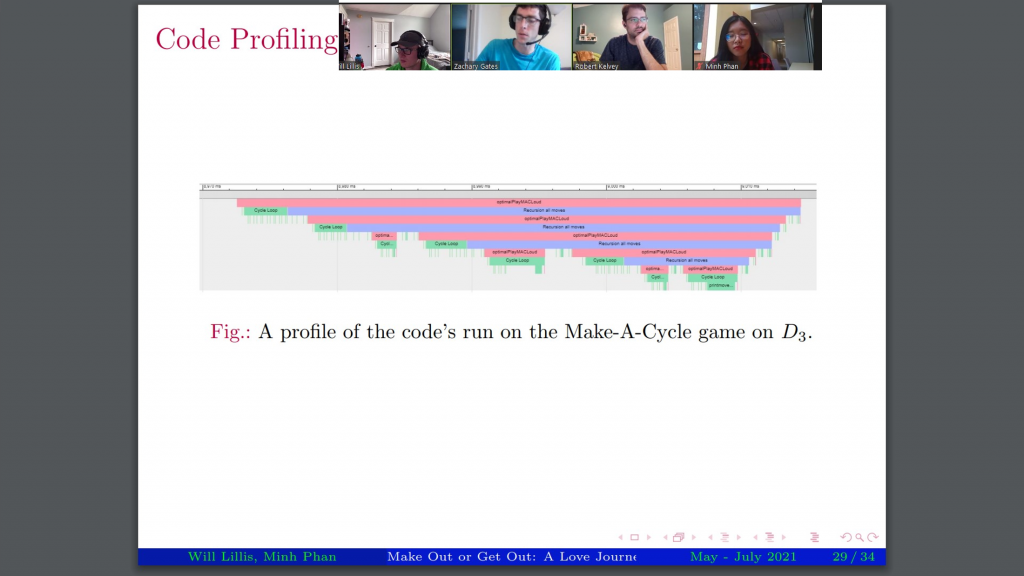
William Lillis ’22 — First, I want to thank the generous donors for funding my incredible internship. This summer, I worked as a research intern for the Mathematics Department at Wabash College under Dr. Zachary Gates. I want to thank Wabash College and especially Dr. Zachary Gates for this chance to work, learn, and develop my skillset through this virtual opportunity.
The research for this internship focused on combinatorial game theory, a branch of mathematics. My research group specifically worked with the Make-A-Cycle and Avoid-A-Cycle games. These are two-player games played on various graphs, where the object of the game is to either be the first to create a cycle or avoid doing so within the starting positions. Some of the games included the Dihedral, Tunnel, Generalized Petersen, and a few other one-offs. The primary goal of this research was to prove whether Player 1 or Player 2 was guaranteed to win on a given graph, for a given game, from a given starting position by figuring out a specific optimal strategy. These strategies assured a win not only on once but preferably on a family of graphs.
While it is viable to find these winning strategies by hand for minor instances, as graphs grow larger and become more interconnected in some cases, it becomes more difficult and extremely tedious to complete this process. Because of this difficulty, I coded a computer program that generates the graphs to arbitrary size and then plays on them optimally, deciding which player is guaranteed to win via optimal play. This code and its results could be used either directly for results or to help build intuition and spot patterns to make conclusions about games played on large graphs.